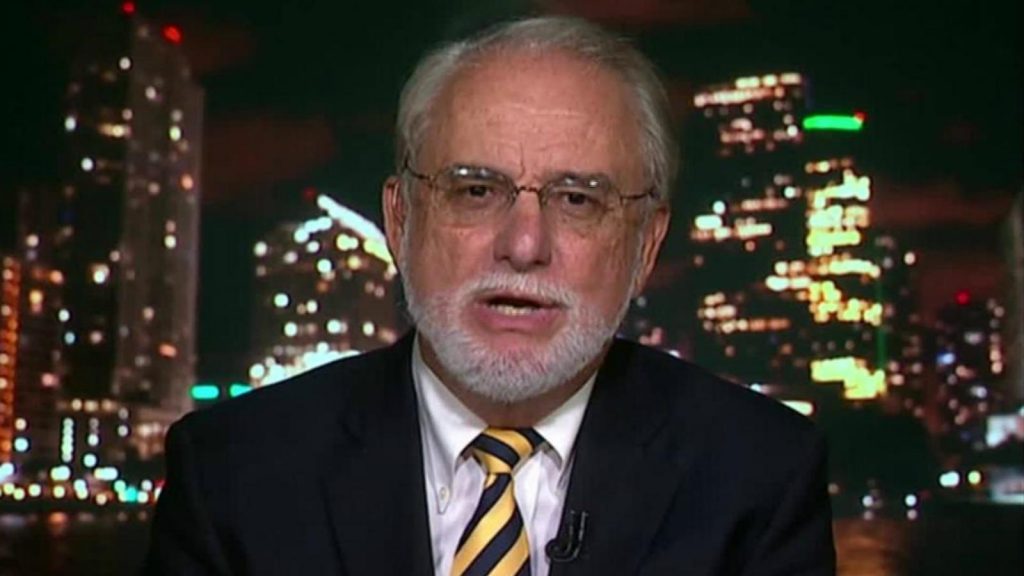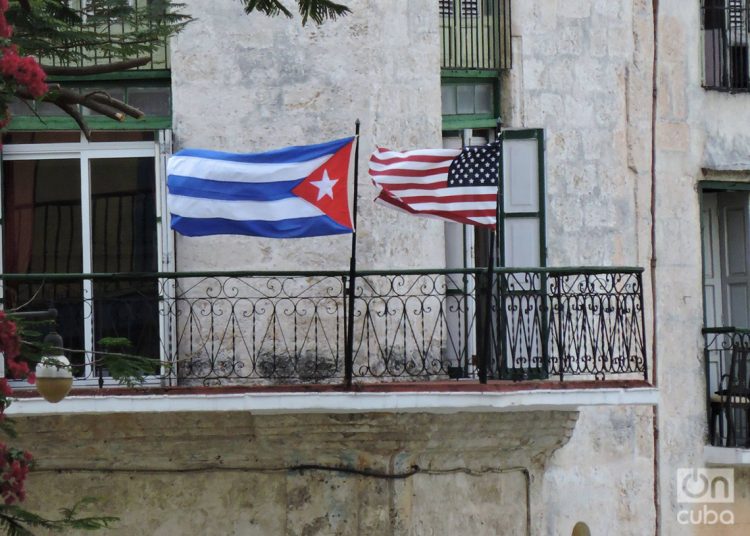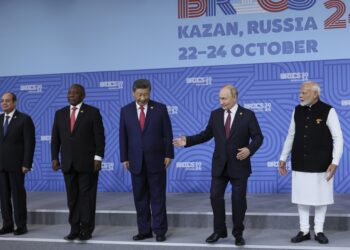Pedro Freyre is a recognized specialist in the United States on the laws of the embargo against Cuba. He is a member of the Akerman Law Firm where he chairs the Akerman’s International Practice. He is an assistant professor at the School of Law at the University of Miami and a Lecturer at the School of Law at Columbia University where he also teaches a seminar on Cuba. Freyre advises U.S. companies on the types of businesses that are legal in Cuba under the trade embargo/blockade. Since 2003, he regularly travels to the island with senior executives of U.S. companies interested in the Cuban market. He was born in Cuba, resides in Miami. Given his recognized experience in Cuba-United States relations, OnCuba interviews him about these topics.

The Cuban government has invited Cuban émigrés and exiles to invest in the island. It recently approved eight decrees that regulate the operation of the so-called micro, small and medium-sized enterprises…. The Helms-Burton Act and the Torricelli Act, which make up the embargo, allow Cuban Americans or their corporations to invest in Cuba without breaking the law?
Here there are two factors to check out. The approval of the Decrees could open the way to formalize and give legal substance to investments in this type of enterprise. The detail of the regulation and its practical implications remains to be seen. That is, if the regulations provide the necessary mechanisms and guarantees to give investors security. But the most important question is whether Cuba is an attractive place for investment. The answer to that question depends not only on a Decree but on an entire economic, political and regulatory ecosystem that makes investment and capitalization easy.
In the current version, the OFAC Regulations only give a very narrow space to make investments in companies that would give loans to certain types of private enterprises in Cuba.
So, could Biden establish through OFAC a special license for Cuban Americans for this purpose?
The president has the authority to amend the embargo regulations and grant a General License expanding the right of persons subject to U.S. jurisdiction to invest in businesses in Cuba. The drafting and application of this license is very technical.
Juan González, U.S. National Security Council senior director for the Western Hemisphere, recently clarified that Biden is not Obama in his policy towards Cuba. The New York Times went further and said that Biden even surpasses Trump in his policy of confrontation towards the island.
President Biden, unlike his immediate predecessor, is a thoroughly and fundamentally decent person with a very high level of experience in governing one of the most complex societies on the planet.
I know for a fact that he has great empathy with Cubans and is studying how to implement a rational policy.
What does Biden hope to achieve from his politics?
Sometimes we Cubans, on both shores, forget a fundamental fact; Cuba’s interests are not and never will be the interests of the United States of America. Above all, the president of the United States has to ensure national security. Having a powerful military base of a foreign power 90 miles away already almost resulted in nuclear war once. That has not been lost sight of. Beyond that concern, it is in the interest of the United States that Cuba be a prosperous and peaceful country whose population does not need to risk their lives in the Straits of Florida to migrate illegally to the United States.
Cuba also offers the potential to become a market and supplier of agricultural products and an excellent tourist destination. Finally, Biden very much takes into account the political impact of Cuban Americans in one of the most important states of the Union.
Cuba is going through a severe economic crisis, to which are added the debts negotiated in 2015 with the Paris Club and the London Club and which have not been paid since 2019, as well as the resurgence of COVID-19. How will Washington view the recent Cuban legislation on micro, small and medium-sized enterprises, which would belong to Cubans on the island?
The legislation will be welcome in principle, but there is great skepticism about its implementation. Many believe that it’s a question of “seeing and believing.”
Biden has affirmed that human rights are at the core of his expectations for Cuba. Do you think Biden will, in addition, try to negotiate political concessions with Havana?
The foundation of relations between countries is the ability to negotiate. A good inheritance from the Obama era is that Cuban and American diplomats already know each other, and somehow or other made progress during the very brief thaw. The issue of human rights is at the forefront of any conversation that might take place.
Can the Cuban economy overcome its current crisis without having better relations with the United States…that is, are good commercial relations with the United States the only way for the island’s progress?
Nothing in this world is unique, but the most obvious and fastest way for the economic development of the island passes through the United States, it is not essential, but it is very advantageous. The United States is the most powerful economy in the world and it would offer Cuba a series of very interesting opportunities. I closely experienced the economic effervescence during the rapprochement and the possibilities were truly fantastic for Cuba.
It is said that the case of Cuba is currently being debated between the Obamist Democrats and the heavy-handed ones who carry a Trump in their hearts…is that true?
Nothing in this world is black and white either. The debate is nuanced. The biggest challenge is to break the archaic models that tie up the entire Cuban nation, on both shores, and redefine the goals and the means. It is very clear to me that we have to be tough on the problem and soft on the people.
The recent appointment of Ricardo Zúñiga as Acting Undersecretary for Western Hemisphere Affairs in the Department of State, in fact places him on the Washington*Havana transmission belt. The Cuban-American congressmen in favor of the confrontation have hit the roof with the appointment — albeit temporary because it is interim — considering Zúñiga a threat and a preview of what Biden’s Cuba policy will be like. How do you see it?
There is not a single person who is decisive in this process. Mr. Zúñiga possesses a high level of experience, knowledge and competence in the subject of policy towards Cuba.
But what is the process of reviewing U.S. policy towards Cuba?
The process is complicated. It requires first of all a review and internal consultations with the different departments of the federal government that are interested in the subject of foreign policy. These include, among others, the Departments of State, Treasury, Defense, Commerce, and the Office of the President. It also requires, for political reasons, consultations with the Cuban-American community and its representatives in Congress. Beyond that, other voices, people familiar with the Cuban issue, academics, businesspeople, and large corporations and their associated groups, also have a seat at the table.
What would be the possible changes that the Biden administration could make?
At the moment the administration has publicly identified an emphasis on human rights, the facilitation of internet access by the Cuban population, the reinstatement of remittances with more controls so that a larger amount directly reaches the ordinary Cubans, relaxation of regulations to facilitate humanitarian and family aid, support for civil society institutions in Cuba, specific sanctions against people and government institutions, search for international support and consensus to support those who ask for political freedoms and more facilities to support the development of the private sector in the economy.
What are the options for the Cuban government?
It seems to me that this is a moment where the Cuban government has to have great honesty with itself and with the people about what happened on July 11. This was not a conspiracy that came from the United States but a spontaneous popular expression dispersed throughout the country. The voices calling for change that day were raised in San Antonio de los Baños, Matanzas and Santiago de Cuba, not in Washington, Miami or Langley. Beyond the frustration over the economic hardships and the crisis of the pandemic, a popular demand for political freedom was heard and clearly seen. Ignoring that reality is a fundamental mistake. This is the time to make deep and systematic political and economic changes. The way to approach this problem is with absolute transparency and the understanding that this is not a problem between Cuba and the United States, this is fundamentally a rupture of the social commitment with the Cuban people. This has to be discussed and resolved among Cubans to serve the interests of their people, not to resolve a confrontation with the United States. This is the time to develop a national sovereignty based on freedom of conscience and political participation, and on the economic and social development of the country based on the liberation of the Cubans’ enormous energy, intelligence, and tenacity.










